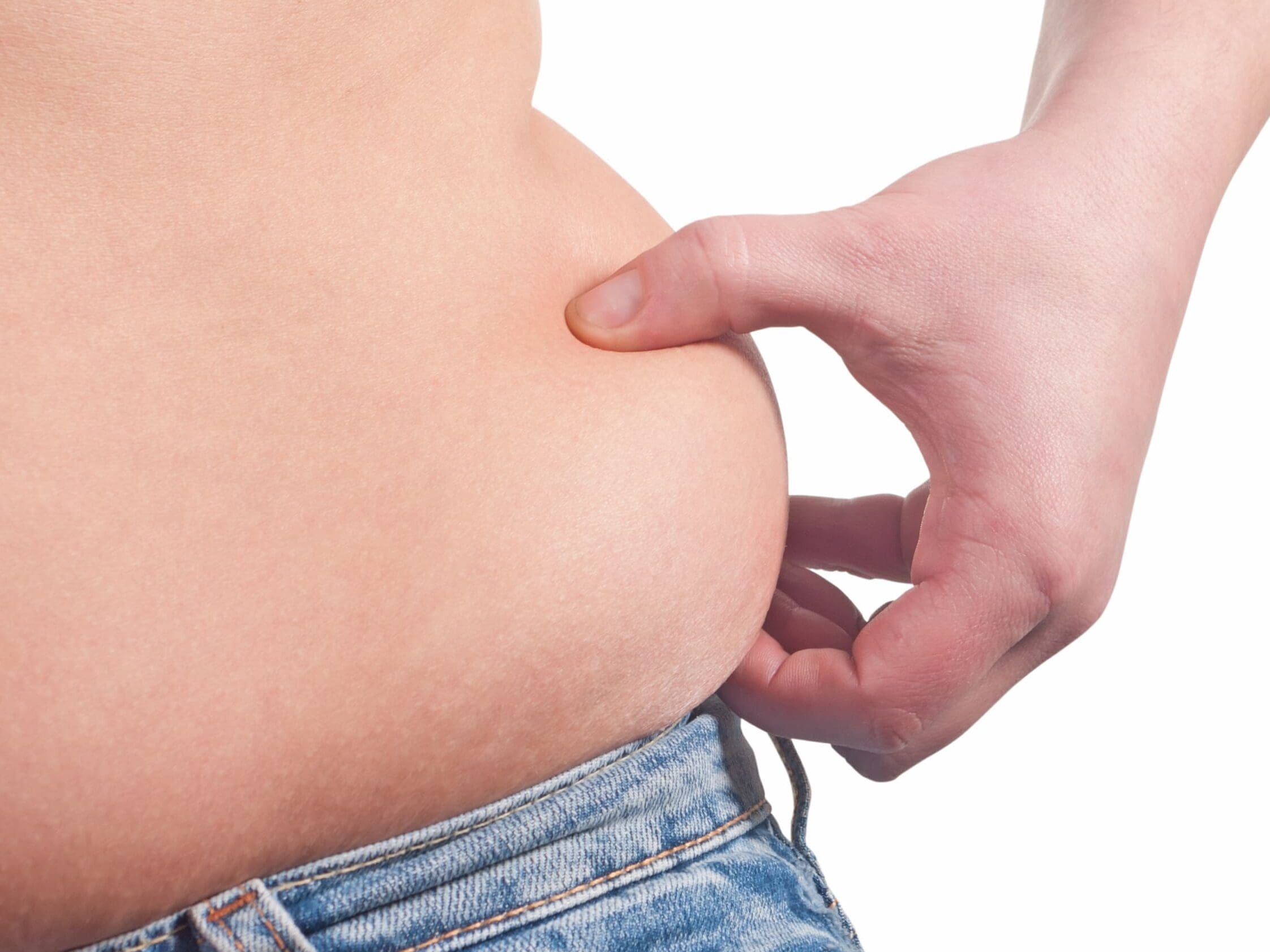May 2, 2025
What causes Meno Belly?
Why am I putting on weight? I hear this a lot in clinic when talking to clients going through the menopause. They have not changed their diet, exercise or lifestyle but suddenly this extra weight has appeared around the belly area.

The term ‘meno belly’ has become a common way for many women to describe the changes they experience during menopause. While some embrace it and others feel differently, it captures in just a few words a challenge that many are navigating.
Why does it happen? Menopause weight gain, especially weight around the middle ‘Meno belly’ is a common issue experienced by many women during the transition to menopause, and it can be attributed to several factors:
Hormonal Changes:
– Oestrogen Decline: As you approach menopause, the levels of oestrogen, a key hormone in regulating fat distribution, decline. This decrease in oestrogen is associated with an increase in abdominal fat, a type of fat that tends to accumulate around the belly.
– Progesterone Changes: Along with oestrogen, progesterone levels also drop. This hormonal shift can lead to water retention and bloating, making weight gain more noticeable.
Slower Metabolism:
– Aging Process: As we age, our metabolism naturally slows down, meaning the body burns fewer calories at rest. This makes it easier to gain weight, even if eating habits remain the same.
– Muscle Mass Reduction: Aging is also associated with a loss of muscle mass (sarcopenia). Since muscle burns more calories than fat, losing muscle mass further reduces the number of calories burned.
Lifestyle Factors:
– Decreased Physical Activity: Many of us experience a reduction in physical activity levels during middle age due to various factors such as joint pain, fatigue, or lifestyle changes, leading to weight gain.
– Dietary Changes: Hormonal changes can affect appetite and food preferences, leading some women to consume more calories or crave unhealthy foods, which contributes to weight gain.
Insulin Resistance:
Menopause can increase insulin resistance, making it harder for the body to use insulin effectively. This can lead to higher blood sugar levels and an increase in fat storage, particularly around the abdomen.
Sleep Disturbances:
Menopausal symptoms like hot flashes and night sweats can disrupt sleep patterns. Poor sleep is linked to weight gain because it can lead to hormonal imbalances, increased appetite, and a preference for
high-calorie, sugary foods.
Stress and Emotional Factors:
– Cortisol Levels: The stress hormone cortisol tends to rise with age, especially during menopause. Elevated cortisol levels can lead to weight gain, particularly around the abdomen.
– Emotional Eating: Some women may experience increased stress or mood swings during menopause, which can lead to emotional eating and, consequently, weight gain.
Genetics:
Genetics play a role in how weight is distributed and how the body responds to menopause. Women with a family history of weight gain during menopause may be more prone to it themselves.
Is HRT the answer? Lots of women are on HRT or bioidentical hormones and for some this helps elevate many symptoms, but I do hear several clients still complain of weight gain or feeling bloated.
Menopause affects everyone differently, and for many, the symptoms can feel overwhelming at times. But you don’t have to face it alone, there are effective ways to manage these changes, and support is available every step of the way. I’m here to help, along with other experienced menopause professionals, to guide you through this transition with confidence.
You are not alone, and this isn’t the end of life as you know it, it’s a new chapter, and you’ve got this.
Click here to learn more about how we can support you.